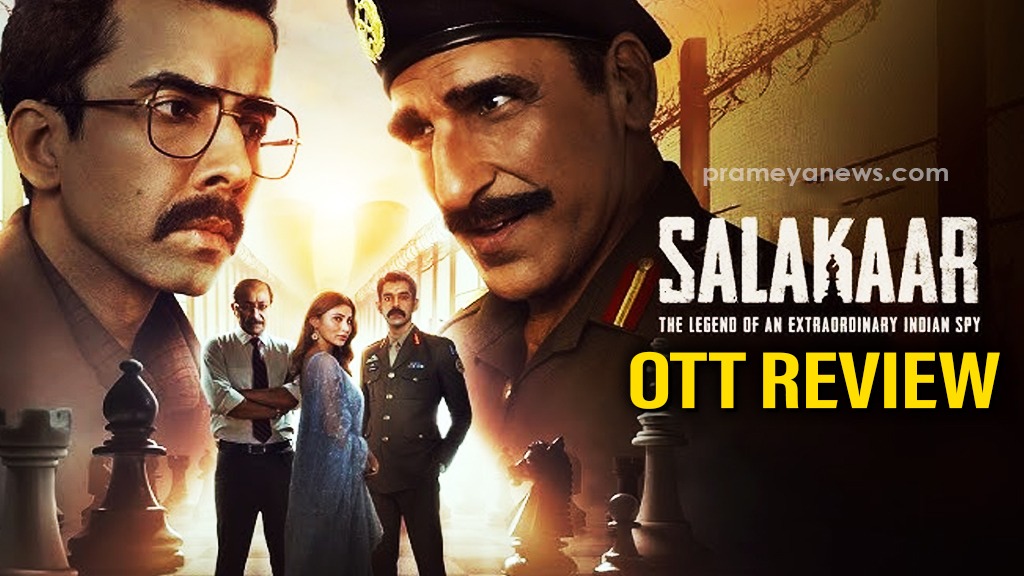

The new spy thriller Salakaar arrives on JioHotstar with a compelling and timely premise, drawing inspiration from the real-life history of nuclear espionage between India and Pakistan. The series tells a big story that unfolds across two distinct timelines, weaving a complex tale of secrets, sacrifice, and geopolitical conflict. While it has all the ingredients of a top-tier espionage drama, the show ultimately struggles to live up to its own potential, delivering a story that is intriguing but inconsistent, and often undermined by logical lapses.
The series operates on a dual timeline, jumping between 1978 and 2025. The historical plotline follows a young R&AW agent, Adhir Dayal (Naveen Kasturia), in a character loosely based on India's real-life National Security Advisor, Ajit Doval. Dayal is on a high-stakes undercover mission in Islamabad, tasked with stopping Pakistan from developing a nuclear bomb. This flashback narrative is one of the show's strongest elements, effectively capturing the feel of the late 1970s with authentic period details, including a clever nod to cricketer Kapil Dev’s debut tour of Pakistan.
In the present day, the action centers on another R&AW agent, Mariam (Mouni Roy), who is using the cover of a tuition teacher to get close to a high-ranking Pakistani officer with ties to the same secret nuclear program. While this sets up a tense cat-and-mouse game, the 2025 storyline feels underdeveloped. Its objectives are less clear, and it often relies on familiar tropes, such as the "honey trap," without adding much new to the genre.
Despite its promising setup, Salakaar is hampered by a number of inconsistencies that strain believability. Key plot points often defy logic, such as a main character surviving a massive explosion at a nuclear facility with only minor injuries, or security at a top-secret location appearing surprisingly lax. These moments pull the viewer out of the story and weaken the otherwise carefully constructed tension.
The character development is also uneven. Naveen Kasturia delivers a strong, understated performance as the young Adhir Dayal, conveying the quiet intensity and moral compromises of a deep-cover agent. However, Mouni Roy's character, while looking the part of a femme fatale, is often written into situations that lack believability, frequently appearing more in distress than in control. Furthermore, some of the visual details, such as the geographical depiction of the area around the Kahuta nuclear facility, are inaccurate, which may be jarring for viewers familiar with the region.
Directed by Faruk Kabir, Salakaar is an ambitious series that doesn't quite stick the landing. It has the visual flair and suspenseful score of a quality thriller, and its core premise is fascinating. However, the uneven writing and far-fetched plot twists prevent it from reaching the heights of its contemporaries in the espionage genre.
For those who enjoy a classic spy story and are willing to overlook some narrative flaws, Salakaar offers a quick and engaging binge-watch. Its five, 30-minute episodes move at a brisk pace, and its exploration of a critical chapter in South Asian history is certainly compelling. It remains a watchable drama, even if it never fully delivers on its initial promise.